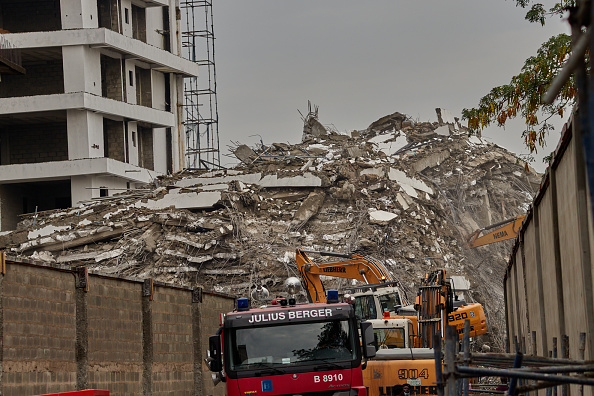Lagos – The death toll in a high-rise collapse in Nigeria’s Lagos has risen to 42 while the number of survivors increased to 15, state authorities have announced.
The cause of Monday’s disaster is still unknown but building collapses are common in Africa’s most populous country, where millions live in dilapidated properties and construction standards are routinely ignored.
“We have a total of 42 bodies that have been recovered,” Governor Babajide Sanwo-Olu said late on Saturday.
The 21-storey building under construction in the upscale Ikoyi district crumbled on Monday afternoon, trapping dozens of people working on the site.
As of Friday, the authorities had said that nine people had survived – some were rescued alive, others on the ground floor managed to escape unharmed.
ALSO READ | Hope dwindles as Lagos building collapse death toll climbs
Over the weekend, the number of survivors increased to 15 after six additional people who escaped the collapse were identified.
The total number of people on site is unknown but Sanwo-Olu said 49 families had so far filed a missing persons report and that “DNA examination was being undertaken on some of the bodies difficult to be identified.”
The governor said money was set aside to help families cover burial fees and that financial support was also offered to survivors.
Search and rescue efforts were still ongoing Saturday, the authorities said.
The governor earlier described the incident as a “terrible national disaster”, adding that “mistakes were made from all angles”.
He set up an independent panel to probe the causes of the collapse and declared three days of mourning starting on Friday.
Building collapses happen frequently in densely populated areas of Lagos, which is home to some 20 million people.
Two other smaller buildings in Lagos also collapsed on Tuesday following heavy rains, though no one was killed.
Poor workmanship and materials and a lack of official oversight are often blamed.
Follow African Insider on Facebook, Twitter and Instagram
Picture: Getty Images
Source: AFP
For more African news, visit Africaninsider.com


